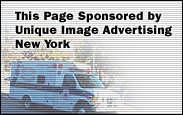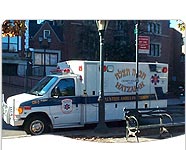 
First Aid Kit
The American College of Emergency Physicians has compiled a list of items it believes should be in every First Aid Kit. This kit should be kept together in one place, and every member of the household should know where it is, as well as how to use each item in the kit.
This list will provide you with the necessary "tools" to handle many medical emergencies at home. All items are readily available from your local pharmacy. after ingestion of certain poisons. (Use only on the advice of a poison control center or the emergency department.)
For the kit itself, a small tote bag is recommended because it is large enough to hold all items listed, it is easily transported (even on vacation), and it is big enough to be visible wherever it is kept. Take the same precautions with your first aid kit that you would with any medicine. Store it out of the reach of children and only use products with child safety caps.
First Aid Kit Contents
- Acetaminophen, Ibuprofen, and aspirin tablets: For headaches, pain, fever, and simple sprains or strains. (Aspirin should not be used for relief of flu symptoms or given to children.)
- Ipecac syrup and activated charcoal: For treatment after ingestion of certain poisons. (Use only on advice of a poison control center or the emergency department.
- Elastic Wraps: For wrapping wrist, ankle, knee, and elbow injuries.
- Triangular Bandages: For wrapping injuries and making an arm sling.
- Scissors with rounded tips.
- Adhesive tape and 2" gauze: For dressing wounds.
- Disposable, instant ice bags: For icing injuries and treating high fevers.
- Bandages of assorted sizes: For covering minor cuts and scrapes.
- Antibiotic ointment: For minor burns, cuts, and scrapes.
- Gauze in rolls and in 2" and 4" pads: For dressing wounds
- Bandage Closures: 1/4" and 1 ": For taping cut edges together.
- Tweezers: To remove small splinters and ticks.
- Safety pins: To fasten bandages.
- Rubber gloves: to protect yourself and reduce the risk of infection when treating open wounds.
- First Aid Manual
- List of emergency telephone numbers.
The above is for general informational purposes only. Always consult your
physician regarding specific medical issues and call Hatzalah or your local
ambulance service in the event of an emergency.
Back to Safety Tips Index
|









